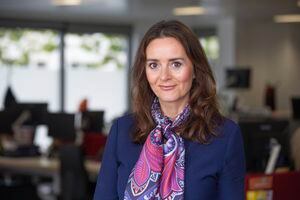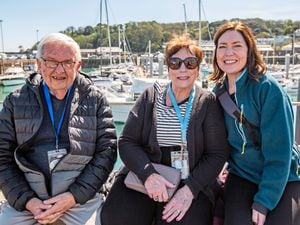‘We can turn island into global digital talent hub’
A TASK FORCE should be established to address technological disruption projected to take out a third of current jobs in Guernsey – and ensure future success in an ever-more-digital world.

The need for action now was set out by Leyla Yildirim, chief strategy officer at PwC Channel Islands, at a packed Guernsey Institute of Directors seminar examining the impact of technology yesterday.
Highlighting recent PwC research that 10,800 existing jobs in Guernsey could disappear by 2035, the event heard how work and wider society was being transformed – with the Covid-19 pandemic and lockdown accelerating the process.
Other competitor jurisdictions such as Luxembourg and Singapore were already busy digitally retooling their workforces and economies. Guernsey failing to act now would risk it ‘falling behind’ and losing business – while agile action would ensure new jobs and business for the island.
‘I would be quickly pulling together a task force from government, from business and education and the third sector to work on this collaboratively,’ said the PwC director.
‘All united around some common goals and objectives, otherwise what happens is people fixate on training and training courses. That is not what this is about. That is one element, a deliverable, but this is not just about offering loads of training.
‘That sort of collaboration is really important. Government, we need you to frame the problem, provide the funding and policies – and it’s all got to be linked to economic growth. Don’t see this as a cost, this is about making our island more successful and more competitive.’
Central to the mission of any task force should be the motto ‘leave no one behind’, with some sections of the community at risk of being left behind by technological change. That meant ensuring connectivity, access, digital literary and work-ready skills – having a ‘digital mindset’.
Coding and programming data scientists were important, said the senior PwC executive, but so too were ‘soft skills’. ‘This is about getting our workforce to be comfortable with and understand the potential of technology because we don’t know today what technology we’ll be using in 2035,’ she said.
There was potential for as many news jobs to be created as those lost, but ‘unless we up-skill people now, we are going to have demand for roles and skills but we’re not going to have the talent in our population to do those jobs’.
‘Location will actually become less important. We have seen that through lockdown. It’s always been the case through history that people flowed to where the work is. But in the future the work will flow to where the people are.
‘For Guernsey I think that’s a huge opportunity. We are already used to serving an international client base. So, why not in future position Guernsey as a global digital talent hub? I think we have a real opportunity to do that and to be very successful.
‘But there is a flip side to that, which is that if we don’t do anything we could risk losing work to other jurisdictions that might be seen as more tech-savvy.’





